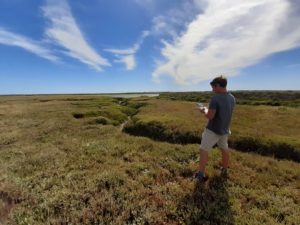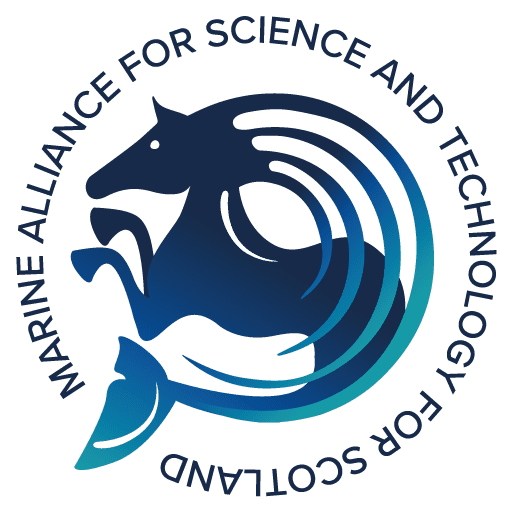As of March 2023, MASTS is proud to announce that the University of Essex has successfully applied to become our 18th partner institute. Since its inception in 2009, MASTS has grown from its initial 12 partners to welcome other public body organisations and research teams, as well as higher education institutes.
MASTS Executive Director Professor David Paterson said:
“The MASTS organisation is absolutely delighted to welcome the University of Essex into the MASTS network. On reviewing Essex’s application, the MASTS Governing Council and the Directorate were impressed with the quality and depth of their submission, and it was clear that as academic participants, they would be a fantastic addition to the MASTS team.
MASTS has an agreed five-year business plan and we will continue to maintain our current partnerships to support organisations such as Marine Scotland Science (MSS), NatureScot, Scottish Environment Protection Agency (SEPA) and the Joint Nature Conservation Committee (JNCC). As part of our future plans, we are pleased to be able to now support a wider marine network across the UK.
MASTS looks forward to the advances in research, science policy, training, and outreach that we can make with our new partners in Essex. We have always felt that the sea has no set boundaries, and neither should our work to support the UK marine community.”
With the news of being accepted, Prof. Corinne Whitby and Dr Natalie Hicks said
“Essex University is extremely pleased to be the first English University to join MASTS. We already work closely with colleagues in Scotland, and our membership in MASTS further strengthens these networks, as well as opening up opportunities for new collaborations and knowledge sharing. We are very much looking forward to working with colleagues and organisations across the MASTS community with the common goal of advancing marine sciences, nationally and globally.”
To help introduce the work of the University of Essex to the MASTS community please check out the below Q&A with our newest colleagues below (links included):
Q: MASTS is a consortium of marine research institutes, each of which has various specialities, what marine science topics do the teams in Essex focus on?
Research at Essex covers many marine systems, from deep sea corals and offshore sediments to oyster restoration and coastal habitats across tropical, temperate and polar regions. Our research spans from genes, proteins, and cells to species, communities and ecosystems. Specific research topics at Essex include genomics, pollution (such as petroleum hydrocarbons, microplastics and nanoparticles, biofouling, bioaerosols, antimicrobial resistance), alongside biogeochemistry (blue carbon, nutrient cycling), ecology (microbial, macrofauna), evolution, synthetic biology and big data analysis.
In addition, to conducting their own research the University is co-organising the 9th International Symposium on Applied Microbiology and Molecular Biology in Oil Systems (ISMOS-9) in Edinburgh, June 27-30 2023, and are hosting FSBI 2023 conference: fish habitat in a changing climate, 24-28 July 2023.
Q: The University of Essex is and has been involved in many large UK marine projects as well as international research, which ones should the MASTS community know about?
- Functionality and Ecological Connectivity of Man-Made Structures (FuECoMMS) is a NERC-INSITE project examining the function and connectivity of man-made structures with a decommissioning perspective;
- ORBIT: Offshore Renewables: winds of change for Benthic communities?;
- SeaDNA: Assessing marine biodiversity and structure using eDNA and Gradients of marine biodiversity and linkages with eDNA across the Wallacea Region;
- “Quantifying a marine ecosystem’s response to a catastrophic oil spill” is a NERC grant the University is leading on
Other work also includes the topics of Coastal natural capital, Management of vulnerable and commercial fishes, and Sub-Antarctic deep sea research.
Beyond the UK we are also involved in the EU Horizon2020 Project on bioaerosols: InChildHealth; and lead an international consortium on marine biofouling control.
Our biofilm engineering research, which manipulates wildtype marine biofilms to reduce biofouling and drag, is currently funded by the US Office of Naval Research (ONR) Environmental Quality Program, the DARPA Arcadia Program and ONR Global. We provide a laboratory-scale biofouling testing capability for academic research, industry and defence stakeholders and perform fundamental studies of biological adhesion across various applications (The Leverhulme Trust).
In a deep-sea initiative, jointly funded by NSF/NERC, Dr Taylor is en route to co-lead an expedition to Galapagos. This expedition aims to collect biogeochemical data to test competing hypotheses about carbon cycling that have been used to explain rising CO2 levels at the end of the last glacial period. The team will be targeting unexplored areas of the deep-sea of Galapagos to collect fossil and live deep-sea corals for this purpose. At the same time, data on biodiversity and habitats and a lot of seafloor imagery will be collected.
Within the Coral Reef Research Unit, Professor David Smith combines his coral reef restoration research with a role as Chief Marine Scientist within Mars Inc (the company that make the confectionary). Mars focus on reducing plastic pollution and dealing with water security, as well as investing in coral reef restoration in Indonesia.
Essex is also host to a UKRI Future Leaders Fellow, Anna Sturrock, who is working closely with policy makers during her fellowship: “Novel framework for the biomonitoring & management of vulnerable and commercial fishes”.
Our PhD researcher topics include: “What makes an estuary a home for juvenile fish”; “Thresholds for the native European oyster”; “Regional modelling for hydrodynamics, sediment transport, animal movement”, “North Sea food webs”, “Scotia Sea larval dispersal modelling”, “Antarctic food webs”, “Energy flux in commercially fished ecosystems”, “Growth and survival in salmonids”, “Native Oyster Restoration” “Quantifying Blue Carbon around Man-Made Structures”, “Effects of Chemical Dispersants on Mitigating the Environmental Impacts of Marine Oil Pollution”, “eDNA as a tool for monitoring around decommissioning” and “Intertidal seagrass dynamics”.
Q: Are there any current examples of where Essex is actively collaborating with researchers/policy makers in Scotland?
Researchers at Essex lead the NERC-INSITE project FuECoMMS, under Dr Natalie Hicks, with the following MASTS institutes: SAMS, Aberdeen University, National Decommissioning Centre and the University of St Andrews, together with Cefas. This project examines the function and connectivity of man-made structures with a decommissioning perspective and supports a PDRA and two PhD students (one focussed on blue carbon, and the other on the use of eDNA to assess the impact of decommissioning on marine sediment communities). Additional funding under this (through ORBit; Offshore Renewables: winds of change for Benthic communities) expands this work to offshore wind farms.
Dr Tom Cameron works closely with both Heriot Watt and Edinburgh Universities, on native oyster restoration and seagrass population genetic structure.
Professor Graham Underwood currently holds a NERC Knowledge Exchange Fellowship, on ‘Multifunctional benefits of coastal natural capital’, which involves working closely with stakeholders, academics and policymakers around the UK.
Q: Are there specific “centres” or “labs” that have a marine focus at the University of Essex that the MASTS community should know about?
Much of our marine-focused research comes under the Ecology and Environmental Microbiology research group (E-group), although we work closely with social scientists in other departments such as our Government colleagues (one of whom is part of the SMMR project M-SPACE).
Within the School of Life Sciences, we have the Coral Reef Research Unit (CRRU) and Essex Plant Innovation Centre (EPIC) which includes our marine algal culture facility
Essex also hosts a cross-disciplinary Centre for Environment and Society and will soon be establishing a Centre for Coastal Communities in Clacton
Q: What are some of the facilities the University of Essex has to assist the research undertaken your research?
Our facilities include a new Aquatic Ecology Facility with a controlled-environment aquaria for marine invertebrates and fish, microbiological growth chambers, coral-spawning tank, large-scale mesocosms, bioimaging facility, high performance computing cluster, marine vessels and access to several UK/overseas marine field sites. We also have an analytical environmental chemistry suite which includes facilities for organic and inorganic macro- and micronutrient analyses, particle size analysis,and GC-FPD, GC-QqQ-MS/MS and ICP-MS instruments for analysis of marine VOCs, pollutants and hormones (e.g. DMS, hydrocarbons, pesticides, drugs, heavy metals, cortisol/cortisone).
Our technical team also has expertise in fieldwork in marine environments, drones, boat handling, analytical and molecular techniques.
In 2022, the Essex Plant Innovation Centre won a £1 million Wolfson award to establish a unique climate change facility to test vegetative responses in future climates. Researchers from both E-Group and Plant group work closely together in understanding the role of salt marshes as blue carbon habitats as well as coastal defence.
For more information about the facilities please click here
The University also run a tropical marine field course in Indonesia, where undergraduate and postgraduate students head to Indonesia for a diving-based field course.
Additional Links:
Ecology and Environmental Microbiology Research Group
Coral Reef Research Unit
Essex Plant Innovation Centre
https://www.essex.ac.uk/centres-and-institutes/essex-plant-innovation
Centre for Environment and Society
https://www.essex.ac.uk/centres-and-institutes/environment-and-society
Centre for Coastal Communities in Clacton


